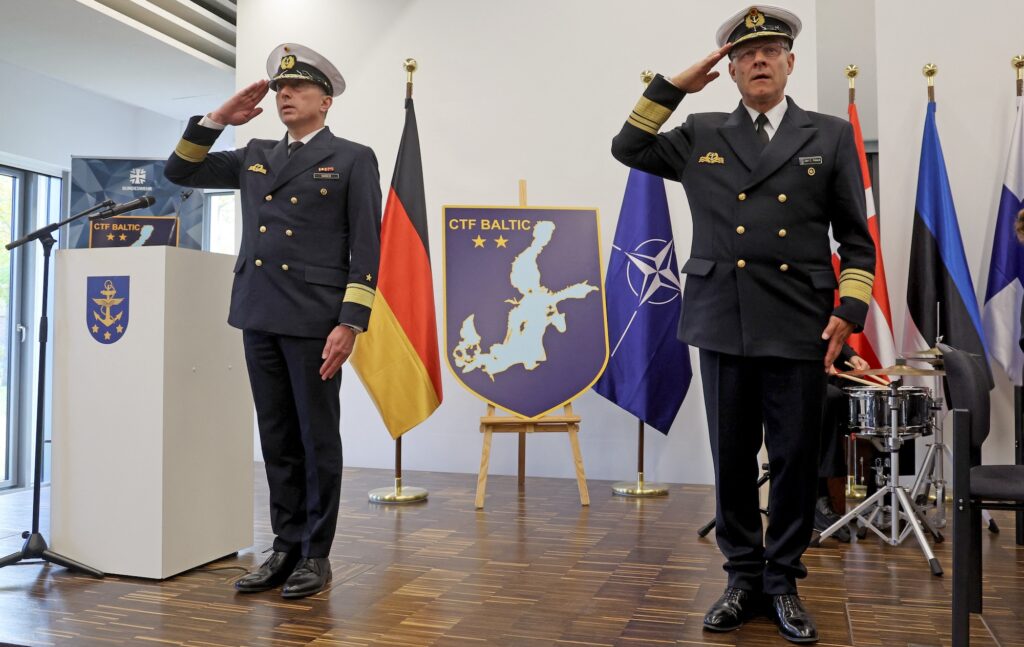Germany on Monday inaugurated a new NATO naval command center to boost defense readiness in the Baltic Sea region as Russia pursues its invasion of Ukraine.
Led by Germany, the Commander Task Force Baltic will be “ready to direct naval operations in times of peace, crisis and war,” said Defense Minister Boris Pistorius.
“The relevance of the region has become even more evident against the backdrop of the ongoing Russian aggression in our immediate neighbourhood,” Pistorius told the opening ceremony.
The center in the port city of Rostock will be led by a German admiral and manned by staff from 11 other NATO countries.
It will aim to “coordinate naval activities in the region” and provide NATO with a “maritime situation picture in the Baltic Sea region around the clock,” according to the German defense forces.
The participants include Finland and Sweden, which joined NATO after Russia’s February 2022 invasion.
Germany’s intelligence chief last week predicted Moscow will likely be capable of launching an attack on NATO by 2030, and accused Moscow of ramping up spying and sabotage activities against Western nations.
“In Germany and Europe, we witness that Russian aggression manifests in various ways, such as cyber and hybrid threats which continue to blur the lines between peace and war,” Pistorius said.
“This is why we must ensure that (Russian President Vladimir) Putin will not have his way. We must defend ourselves and do whatever we can to support our partners at NATO’s eastern flank,” he said.
The center will have 180 staff, including representatives from Britain, Denmark, Estonia, Finland, France, Italy, Latvia, Lithuania, the Netherlands, Poland, and Sweden.
German Foreign Minister Annalena Baerbock also charged that Putin was targeting Germany with “hybrid means,” adding: “We see many, many examples, time and again.”
After a meeting in Berlin with counterparts from Nordic states, she stressed key pipelines and cables in waters around Germany needed better protection as ships were sailing in them “that should not actually be there.”
She also referred to a recent case of a drone flying over an industrial area in the northern state of Schleswig-Holstein that prompted an investigation, with reports saying officials believed it was a Russian reconnaissance device.
The drone was surely “not there to observe the beautiful local landscape, but because there is a chemical park there and a… storage facility for nuclear waste nearby,” she said.



